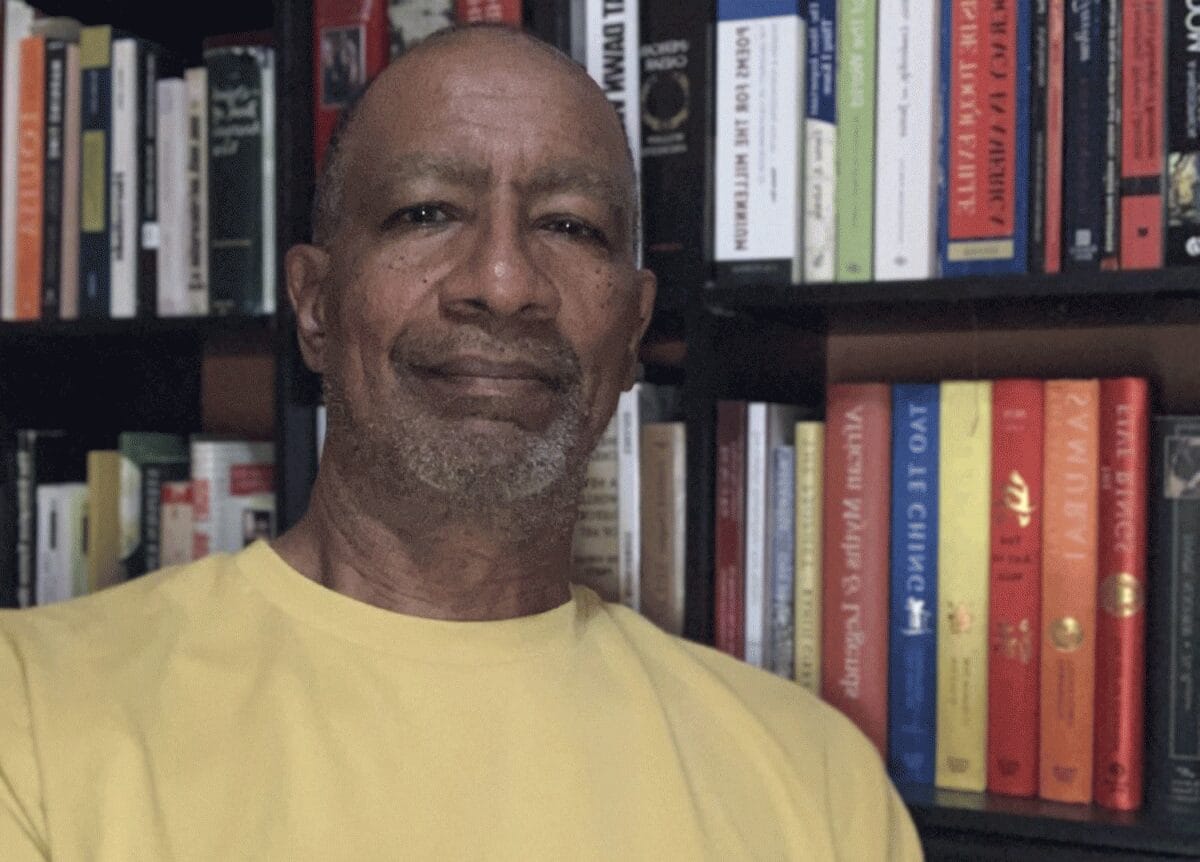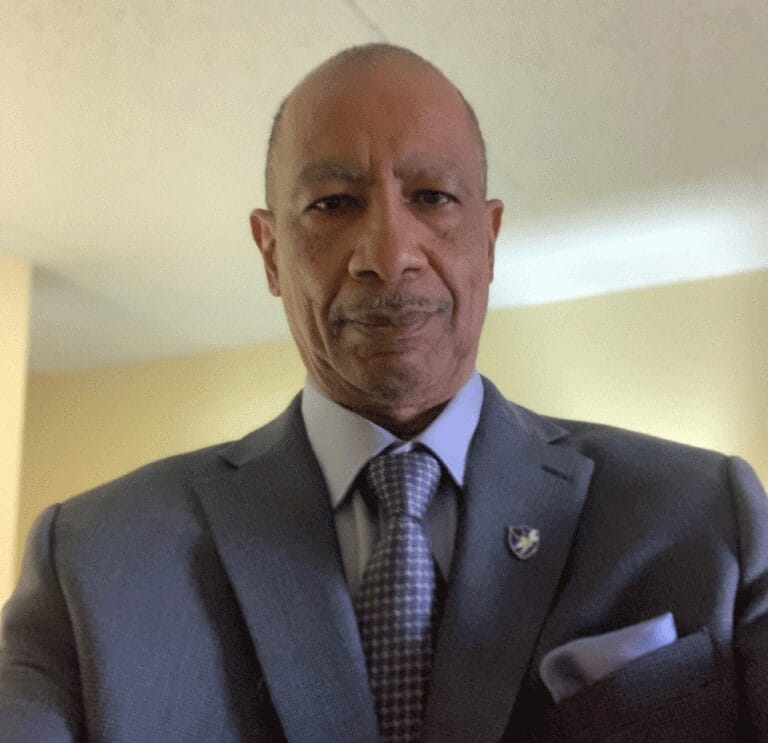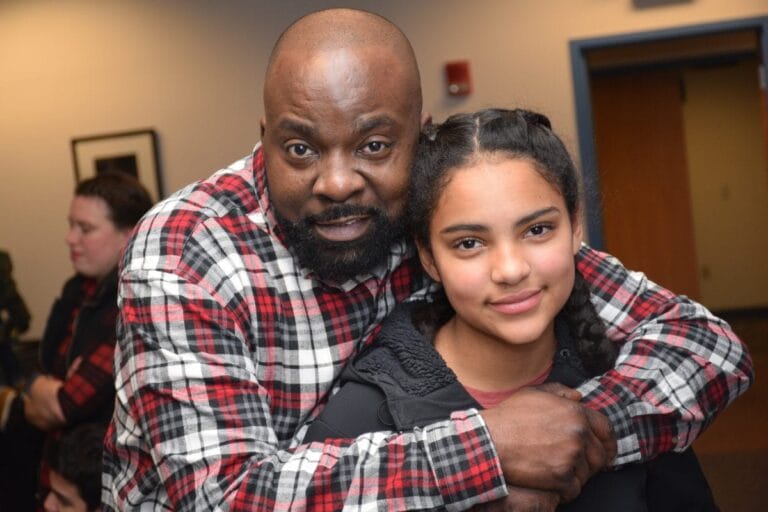
Odyssey Beyond Bars: Communities benefit from prison education program
This article is part of a series celebrating 20 years of the Odyssey Project. Follow along as we remember where we’ve been and look forward to where we’re going.
After serving 38 years in prison, Robert Taliaferro returned home in January 2022. As he walked away from Oakhill Correctional Institution in Oregon, Wisconsin, he carried with him more than 175 college credits and a resume that included editing an award-winning prison newspaper.
“I always wanted to get an education, and I think education in prison is a necessity,” Taliaferro says. “Do we want people to come out of prison the same as they came in, or do we want them to come out and get jobs, pay taxes and be responsible citizens?”
Taliaferro, 67, now spends his time working for foundations, state governments and universities to advocate for people in prison, formerly incarcerated people and prison education programs like Odyssey Beyond Bars, one of the programs he participated in at Oakhill.
Odyssey Beyond Bars (OBB) offers college jumpstart programs – credit and noncredit – and wraparound supports to students incarcerated in Wisconsin state prisons. It’s part of the UW Odyssey Project, which empowers students living in poverty to overcome obstacles, find their voices and reframe their futures.
Since 2019, 125 students have gone through OBB credit courses, giving them hope while benefiting the state of Wisconsin. None of the OBB alumni have been reincarcerated following their transition back to their communities, and many are continuing their education, pursuing degrees or other credentials.
“Higher education in prison helps break the cycle of reincarceration,” says OBB Director Peter Moreno. “Our program helps students develop skills to support their success in academics, employment and re-entry into their families and neighborhoods. That is good for the entire state.”
Transforming lives
As the UW Odyssey Project celebrates 20 years, Odyssey Beyond Bars celebrates seven. In 2015, Odyssey offered its first noncredit course to incarcerated learners. In fall 2019 at Oakhill, the program introduced the first credit course taught by UW–Madison inside a prison in over 100 years.

Robert Taliaferro, after returning home from being incarcerated, works for foundations, state governments and universities to advocate for prison education and other issues.
Taliaferro had to persuade course professor Kevin Mullen to accept him into the 2021 OBB English 100 course – he already had extensive writing experience as an editor of The Prison Mirror, a newspaper at the Minnesota Correctional Facility in Stillwater. But Mullen let him join, in part, to mentor other students.
“The growth [of students in the Odyssey class] was phenomenal,” Taliaferro says. “It was impressive to watch them change through the course. I have known great writers – professional and otherwise – and I would have hired any one of the guys in that class as a journalist.”
Taliaferro described a fellow Odyssey Beyond Bars student who had some pent-up emotions after spending a lot of time in solitary confinement. That student went from “totally introverted and quiet” to finding his voice and becoming “one of the best prison writers that I have known.”
OBB’s core course offering is English 100, Introduction to Composition. Students earn 3 UW–Madison credits that satisfy general education requirements at Wisconsin’s technical colleges and other UW campuses. Through narrative essays, oral storytelling and argumentative writing on social issues, students reflect and share their life experiences.
In addition to English, classes include multicultural literature, nonviolence and social change, and introduction to psychology. OBB courses now take place at four prisons throughout Wisconsin: Oakhill, Racine, Green Bay and Portage.
“When I talk about the value of these courses, I use the word transformation,” Moreno says. “It’s difficult for folks to see how a single class can change a person’s life, but OBB students are not sure they belong, and feel awful about themselves and their history. They come with an intellectual curiosity but are unsure how to act on that. During the course, we see students learn to trust themselves and each other. We see a learning community develop. Students start to see themselves as people with a trajectory and goals.”
In surveys of the course, 100 percent of the for-credit OBB students to date have said their experience in Odyssey Beyond Bars has made them want to take more college classes.
Another OBB graduate who found English 100 transformative is Mark Espanol, who explains his experience in this short video:
‘Hungry for more’
Taliaferro will receive his bachelor’s degree in May 2023, and he wants to pursue a master’s degree. Completing degrees was on his bucket list, but he also believes that education helped him focus on bettering himself and his community.
“Now I’m out here paying taxes, working, buying a car and being a responsible citizen,” he says. In fact, his plate is full of community service – working with a foundation to support people on parole, formerly incarcerated veterans and prison journalism projects at various universities. “Without the educational opportunities I had in prison, I hate to even think about where I’d be.”
According to the Wisconsin Department of Corrections, approximately 70 percent of people in Wisconsin’s prisons have a high school credential or higher. Among men, 46 percent have a high school credential only, 18 percent have some college or vocational training, and 5 percent have some type of college degree; educational attainment is slightly higher among women.
Nationally, about 70 percent of people in prison want to enroll in an academic program, and among this group of aspiring students, more than half want to enter or prepare for a college degree program.
“There’s a tremendous demand for prison education,” says Moreno. “One thing we’ve been noticing at our graduations from Odyssey Beyond Bars is that students appreciate what we offer, but they are hungry for more. We’re just at the beginning.”
Benefiting the state
“Why should UW–Madison be involved in prison education?” Moreno asks. “It’s not only good on an individual level. Prison education has a lot of benefits to the wider society.”
First, Moreno says it makes sense for Wisconsin taxpayers: With a general reincarceration rate of 40 percent, keeping people out of prison saves money.
“When we look at mass incarceration and what it costs the state, this issue of reincarceration is at the heart of it,” he says. “If we’re able to break that cycle and help people find jobs and housing and support families, the chances of them going back to prison are lower. At the same time, they’re contributing to the tax base. With prison education, we want to give folks new opportunities that they didn’t have before they were incarcerated so they come out as productive citizens.”
Every dollar invested in prison education saves $4-5 in reincarceration costs, he adds.
Moreno also says prison education programs can teach students skills directly related to workplace needs, so Wisconsin employers can gain skilled workers that they desperately need.
Taliaferro agrees, adding, “If you want people to stay out of prison and be productive members of their communities, you need prison education. Give people an education and a sense of pride to help them find a focus. After I was released, I became part of my community, and I now have a responsibility to make this community as good as I can.”
Odyssey Beyond Bars grew out of the UW Odyssey Project, a groundbreaking, nationally recognized college education program for adult students living in poverty in the Madison area. For more information, see the Odyssey Beyond Bars website.
Previous Post
Return to college has life-changing impact


